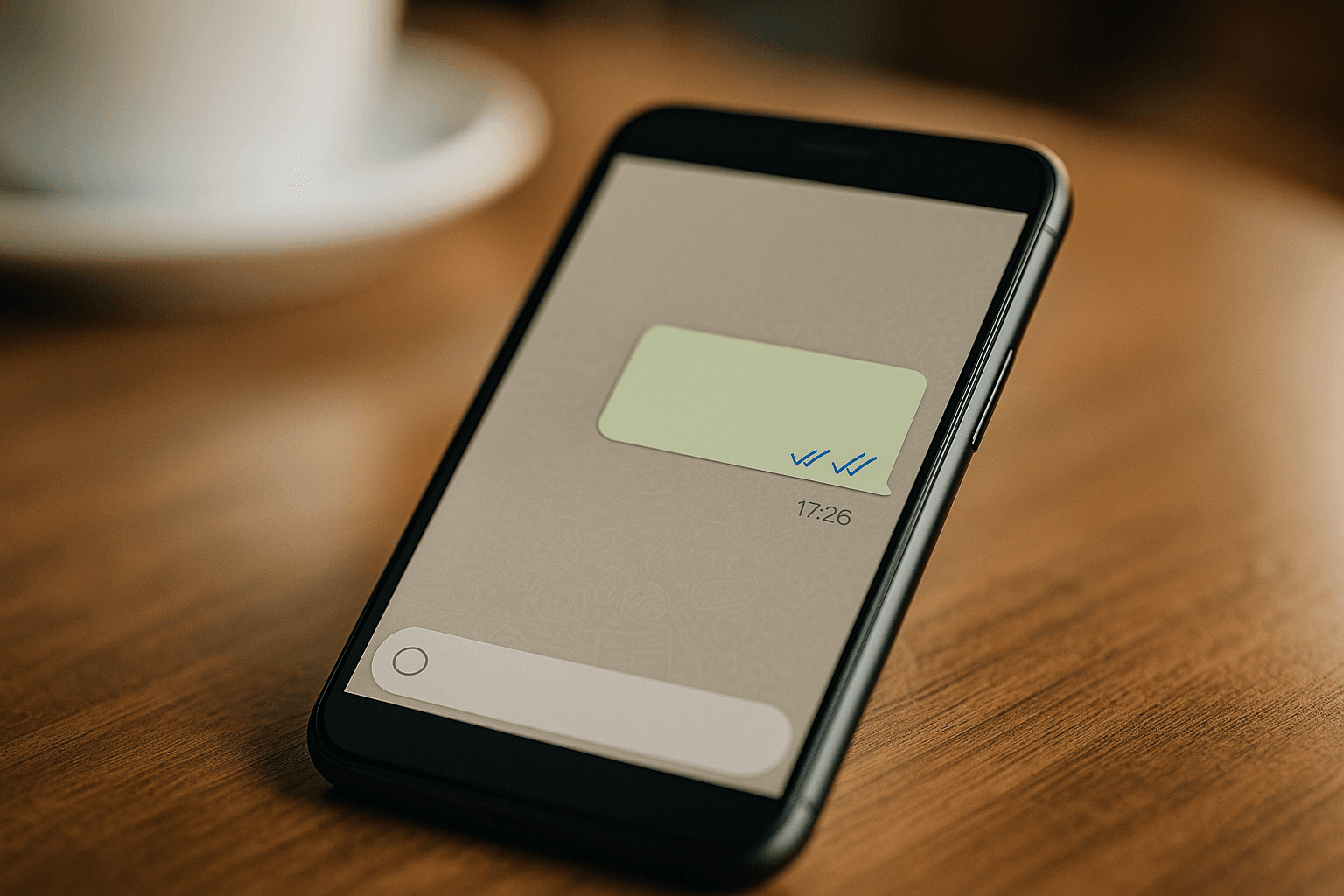Coffee Talks — Responding Late Is an Art
On pauses, agreements and the famous double blue check

We live with messaging glued to our skin. The message arrives, the blue double check appears, and the mental novels begin. Let's breathe. Responding later is not a lack of interest or a default “I don’t care.”: many times it is mental hygiene, focus and care of the bond.
The triangle for deciding when to respond
- Urgency: Will anything get complicated if I don't answer now?
- Context: Can I read and think without driving, working, or cooking?
- Bond: Does this person understand my timing? If not, a brief acknowledgment is appropriate.
Pocket rule: If any of the three fail, avoid responding "on autopilot." Leave a brief acknowledgment and then return with your full attention.
Short scripts that reduce anxiety
- “I read it. I’ll get back to you in the afternoon 🙌.”
- "I can't think about it right now. Should I text you after 7 p.m.?"
- “Yes, the topic is long. A 1-minute audio tomorrow?”
- "I'm in a meeting. If it's urgent, let me know and I'll come out to answer it."
If they left you on read and you need to close: “When you can, could you confirm A or B? Thanks.” / “It’s not urgent; we’ll take it up again tomorrow.”
The double blue check: what it is and what it isn't
- Says: “The message was read (or probably read, depending on the app).”
- It doesn't say: “There is time, desire, and a ready response.”
Healthy options: agree on expectations (“if I leave you on read, I'll respond later”) and normalize the brief acknowledgment of receipt as a sign of respect.
Mini protocols by link type
- Partner/Close Friends: use emergency code icon (⚠️) if necessary.
- Job: Clarify schedules, respond the next day except for emergencies. During scheduled hours: provide brief confirmations (“Yes / No / I’ll be there at 6 PM”).
- Groups: Silence allowed; if they need something direct, they label
@name.
When it is appropriate to respond quickly
- Live coordination (“I’m on the corner / are you coming up?”).
- Confirmations that unlock the other.
- Sensitive topics where prolonged silence can damage trust.
Common mistakes (and their antidote)
- Respond hurriedly and poorly → brief acknowledgment + thoughtful response.
- Always leave it on read → alternates with acknowledgments or emojis of receipt.
- Chase checks → agree on response times (e.g.: 24 hours except in emergencies).
Express templates
- Neutral acknowledgment: “I saw it. I’ll get back to you after work.”
- Postpone with date: “I’ll check it first thing tomorrow and let you know.”
- Ask for clarity: “Do you need confirmation or detailed comment?”
- Close loop: “Thanks. It’s solved ✅.”
Responding late is not a lack of interest: It's editing. Choosing the best moment to say something that contributes. The blue double check can be a heartbeat or a siren; don't let it control you. Control it yourself, with agreements, accusations, and a little humor.
🎬 Recommended video — Marian Rojas Estapé: The neuroscience of emotions
Sometimes responding late is also a way of regulating emotions. This discussion invites us to understand what happens between the message and the response.
